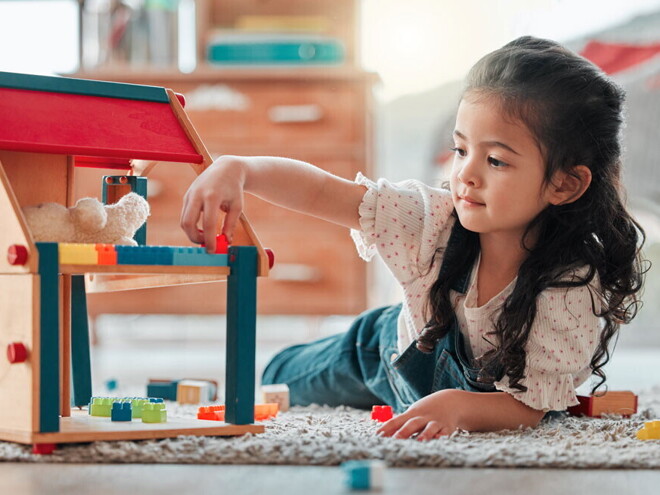
Playing with Your Kid Stimulates Their Brain
Becoming a mother is one of the most fulfilling yet challenging roles you can experience. From sleepless nights to endless diaper changes, the early stages of your kid's life are packed with moments that shape their development. Among these, playing with your kid may seem trivial, but it is one of the most beneficial activities you can engage in. Here, we’ll explore why playing with your kid is vital for their brain development and offer tips to make playtime both enjoyable and beneficial.
Encourages Cognitive Development
When you play with your kid, you’re not just having fun—you’re helping them develop crucial cognitive skills. Simple activities like peek-a-boo or stacking blocks can improve their understanding of object permanence and cause-and-effect relationships. These foundational skills are crucial for later complex problem-solving and logical thinking1.
Enhances Language Skills
Talking, singing, and reading to your kid during playtime significantly boosts their language development. Babies are like sponges, absorbing the sounds and rhythms of speech even before they understand the words. Introducing a variety of words and sounds through playful interaction will build their vocabulary and comprehension skills over time2.
Strengthens Emotional Bonds
Playtime is an excellent opportunity to strengthen the emotional bond between you and your kid. Through interactive play, your kid learns to trust and depend on you, which is essential for their emotional security. This bond lays the groundwork for healthy emotional development as they grow older3.
Promotes Physical Development
Physical play helps your kid develop motor skills and coordination. Activities such as tummy time, gentle bouncing, or reaching for toys encourage physical movement and muscle strengthening. These activities are important for milestones like crawling, walking, and even hand-eye coordination4.
Stimulates Sensory Development
Babies experience the world through their senses, and playtime is a perfect occasion to stimulate these senses. Different textures, colors, and sounds can captivate your kid’s interest and promote sensory development. Simple toys like rattles or textured blankets can provide a multi-sensory experience that aids in their overall brain development[1].
Tips for Playtime
Engage in Face-to-Face Interaction
One of the simplest yet most effective ways to stimulate your kid’s brain is through face-to-face interaction. Babies are naturally drawn to faces, and making eye contact while talking or smiling helps them learn about emotions and social cues2.
Use Age-Appropriate Toys
Choose toys that are suitable for your kid’s age and developmental stage. Soft toys, colorful rattles, and simple musical instruments can captivate your kid’s attention and encourage exploration. Always ensure that the toys are safe and free from small parts that could be a choking hazard3.
Incorporate Music and Singing
Music is a powerful tool for brain development. Singing lullabies or playing gentle music can soothe your kid and promote auditory skills. Clapping along to the beat or using simple musical toys can make playtime more engaging and educational1.
Read Together
Reading to your kid, even at a very young age, can significantly impact their language skills and cognitive development. Choose books with bright pictures and simple text to keep them interested. The act of reading together also fosters a close emotional bond[2].
Eat Together
Spending time eating with your kid after playtime is a great way to ensure they receive all the necessary nutrients and vitamins. Remember that following a healthy diet plays a crucial role in your kid’s cognitive development4.
Playing with your kid is more than just a fun activity; it’s a crucial part of their early development. By incorporating these tips into your daily routine, you can help stimulate your kid’s brain, laying the foundation for a lifetime of learning and growth.
Sources:
1. American Academy of Pediatrics. "The Importance of Play in Promoting Healthy Child Development and Maintaining Strong Parent-Child Bonds."
2. Harvard University Center on the Developing Child. "Serve and Return Interaction Shapes Brain Circuitry."
3. Zero to Three. "The Power of Play – How Fun and Games Help Children Thrive."
4. Mayo Clinic. "Infant Development: Milestones from 4 to 6 Months









